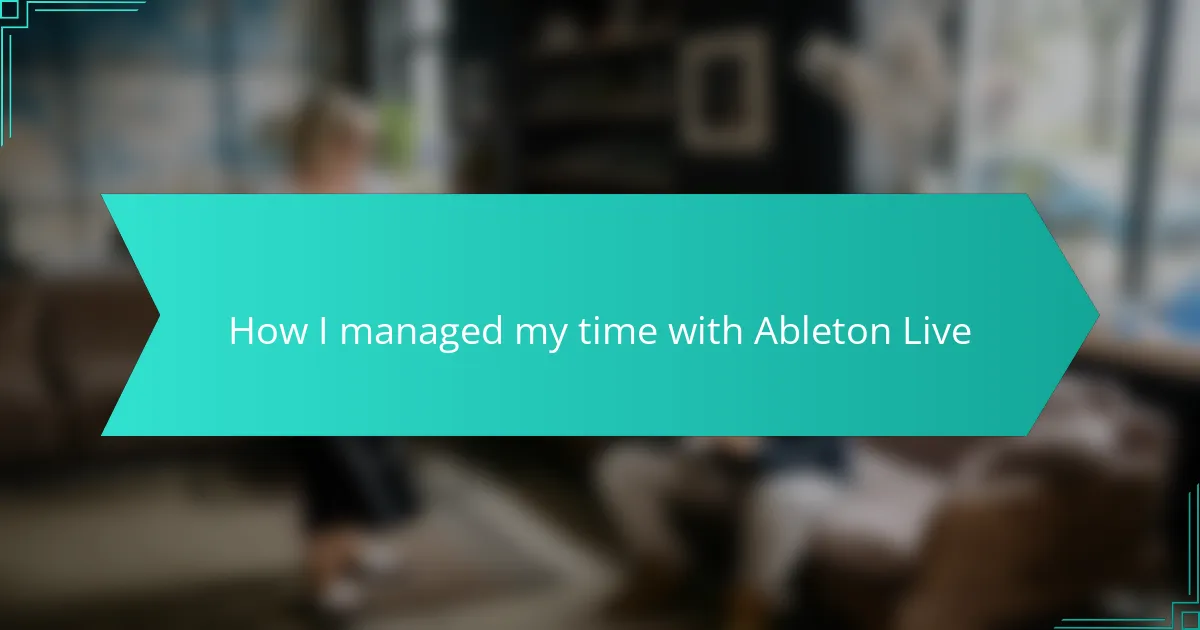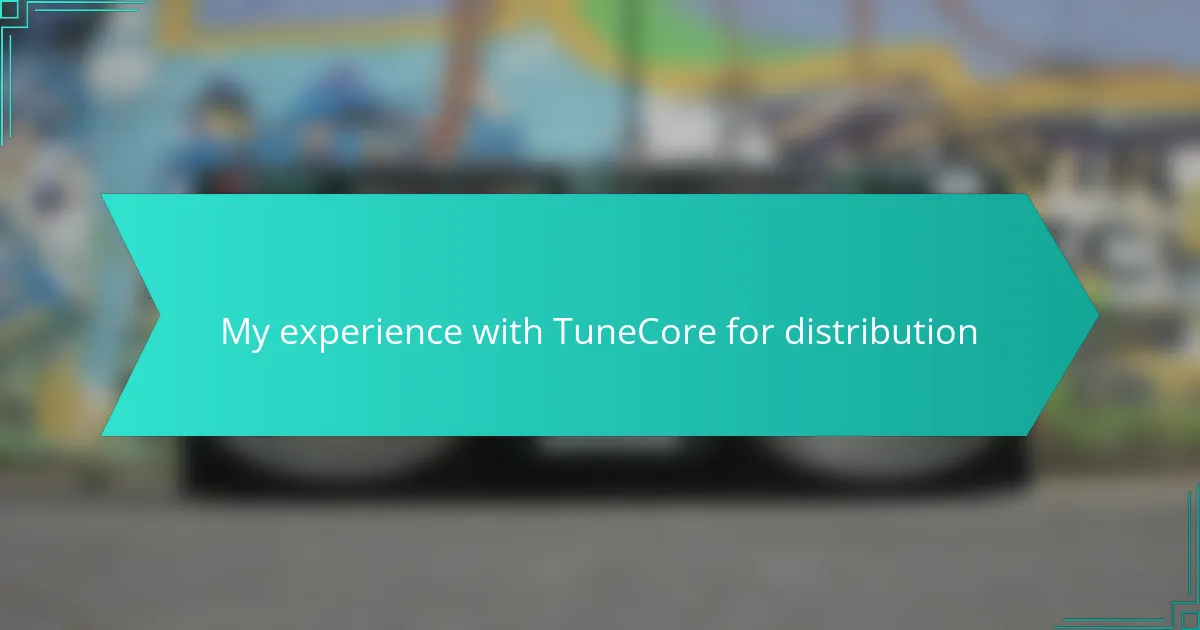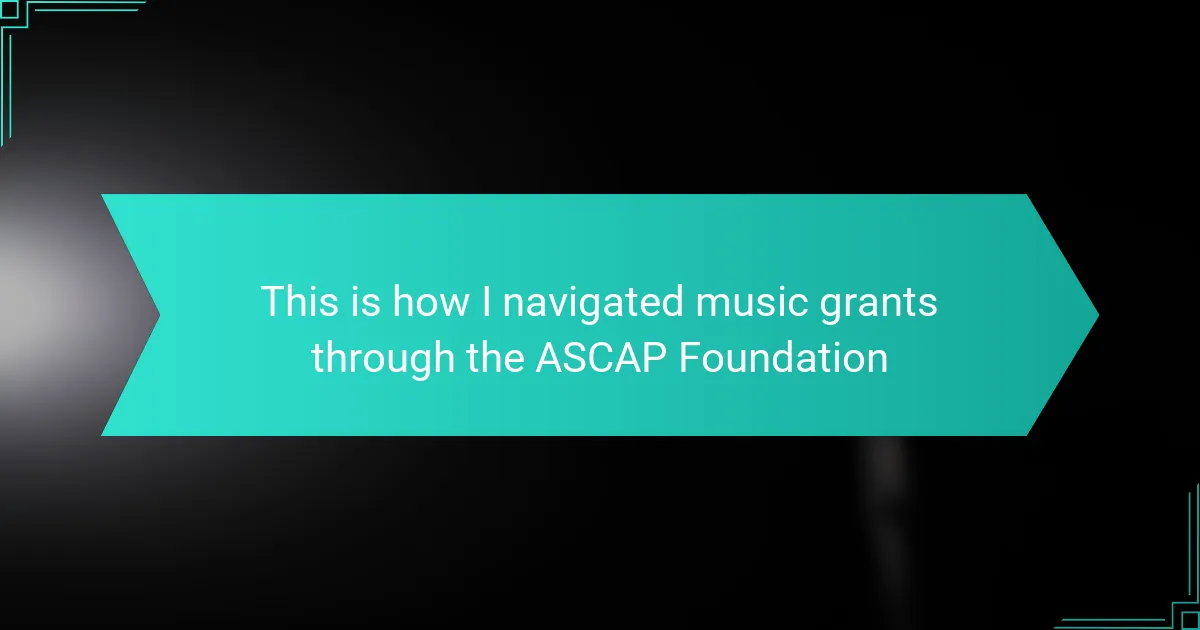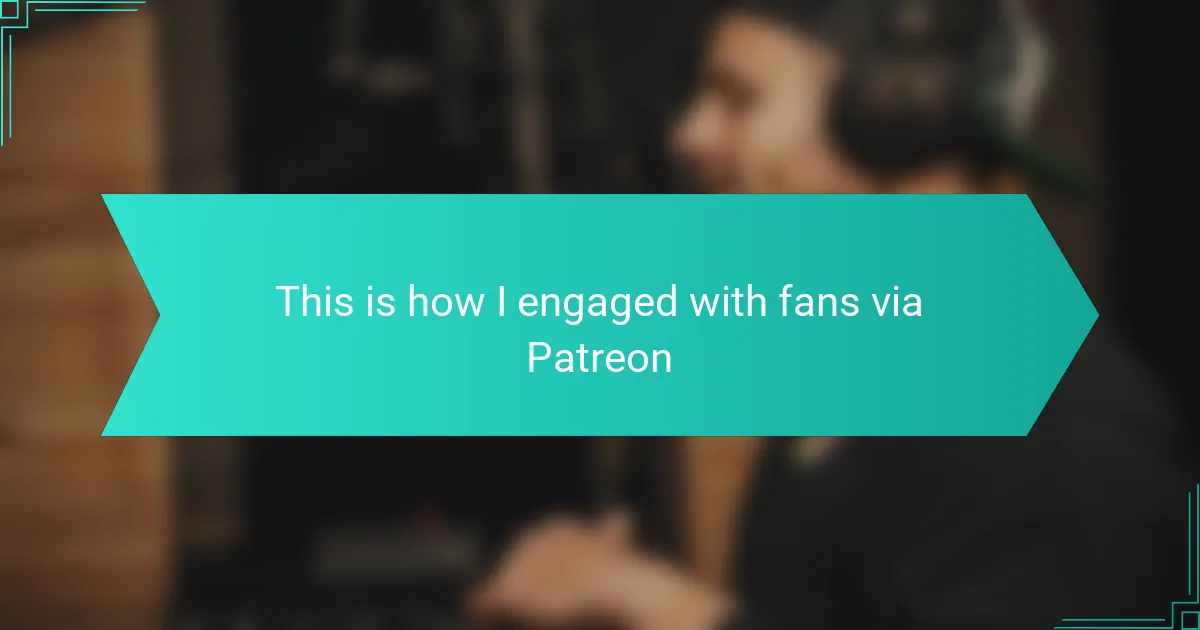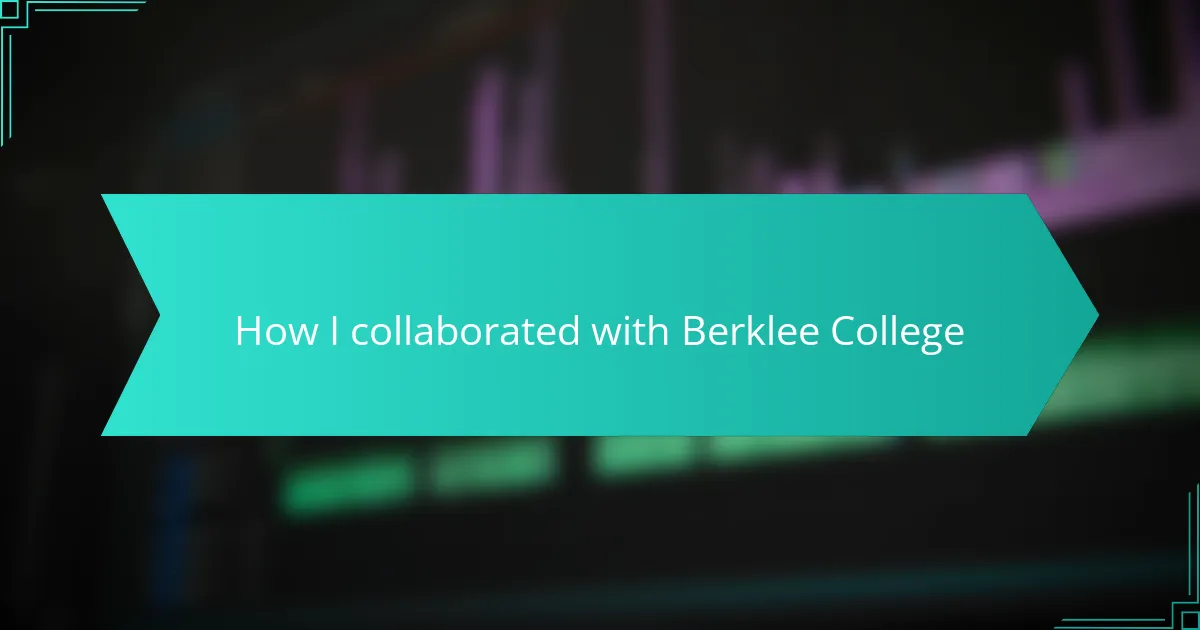Key takeaways
- Time management is essential for musicians to balance creativity and business tasks, helping to improve productivity and reduce stress.
- Utilizing tools like Ableton Live, online tutorials, and time management apps can significantly enhance the music production process.
- Establishing structured routines and setting clear goals for each session fosters both creativity and productivity.
- Experimentation with different genres and techniques keeps the creative process engaging and inspires new ideas.
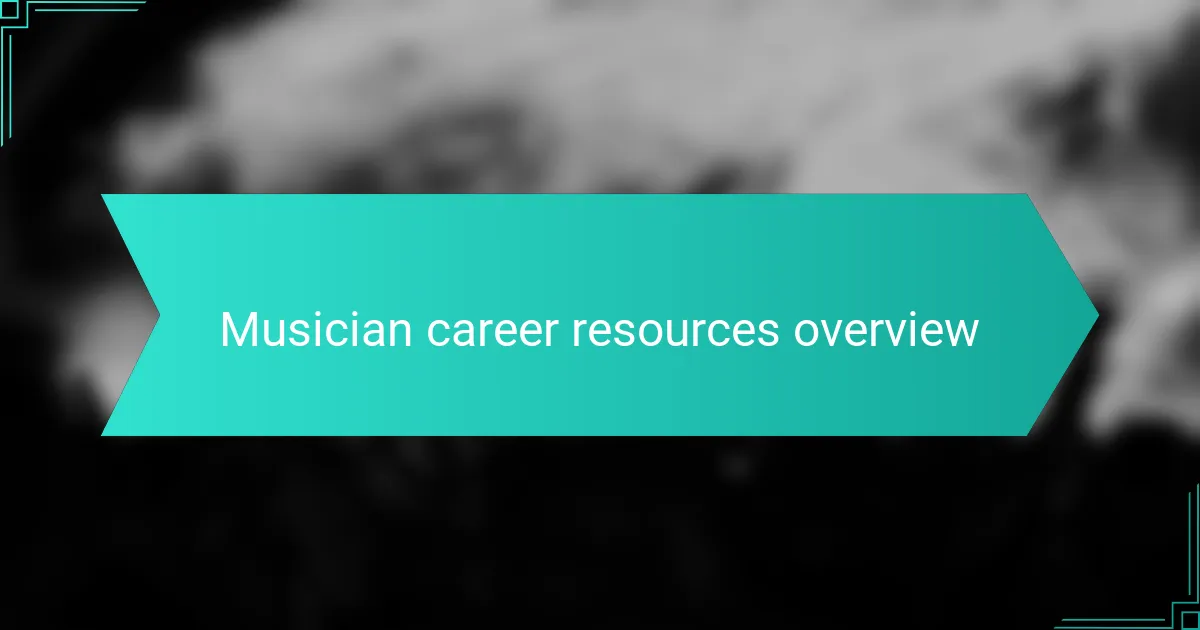
Musician career resources overview
Managing time as a musician is crucial, especially when you’re trying to balance creative work with the business side of your career. I’ve found that staying organized and using the right resources can greatly enhance my productivity in Ableton Live. By adopting effective time management strategies, you can not only create more music but also stay focused on your career goals.
In my experience, it’s all about creating a productive environment and using tools that help streamline the music production process. I remember a time when I used to struggle with deadlines, often leading to late nights and stress. Now, by setting clear goals and utilizing available resources, I find it easier to meet my objectives and enjoy the creative journey.
| Resource | Purpose |
|---|---|
| Ableton Live | Digital audio workstation for music production |
| Online tutorials | Improve technical skills and workflow |
| Time management apps | Help track tasks and deadlines |
| Networking groups | Provide support and collaboration opportunities |
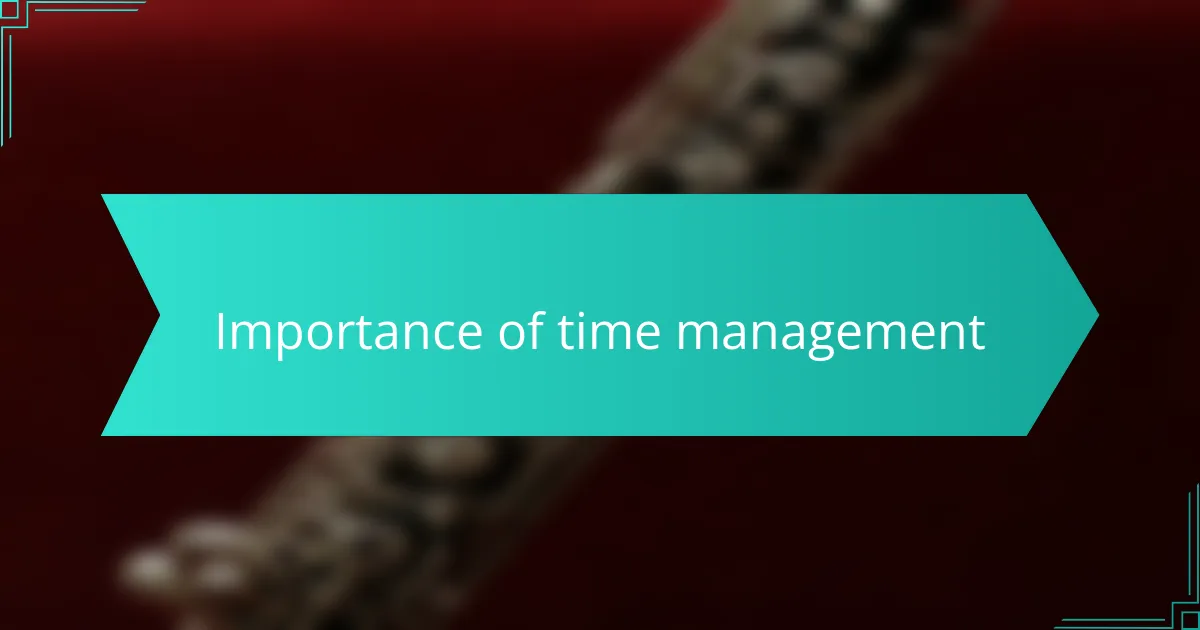
Importance of time management
Time management is paramount for a musician like me, especially in a field where creativity meets strict deadlines. I remember the days when I’d lose track of time, too absorbed in crafting a single sound, only to realize I’d fallen behind on other essential tasks. Isn’t it a frustrating feeling when the passion for creating clashes with the realities of managing a career?
When I began to harness the power of time management, everything changed. Setting aside dedicated blocks for both music production and administrative work helped me to balance the two worlds. I find it oddly liberating to tick off tasks on my to-do list, knowing that each check gets me closer to my goals. Have you ever felt that rush when your day is organized and everything seems to flow effortlessly?
Moreover, effective time management allows me to prioritize my creative work without feeling overwhelmed. A structured approach reduces stress and, paradoxically, boosts my creativity. It’s amazing how a little organization can lead to a more fulfilling artistic journey. How do you keep your creative juices flowing while tackling the business side of music? For me, it’s all about setting priorities and creating a clear path forward.
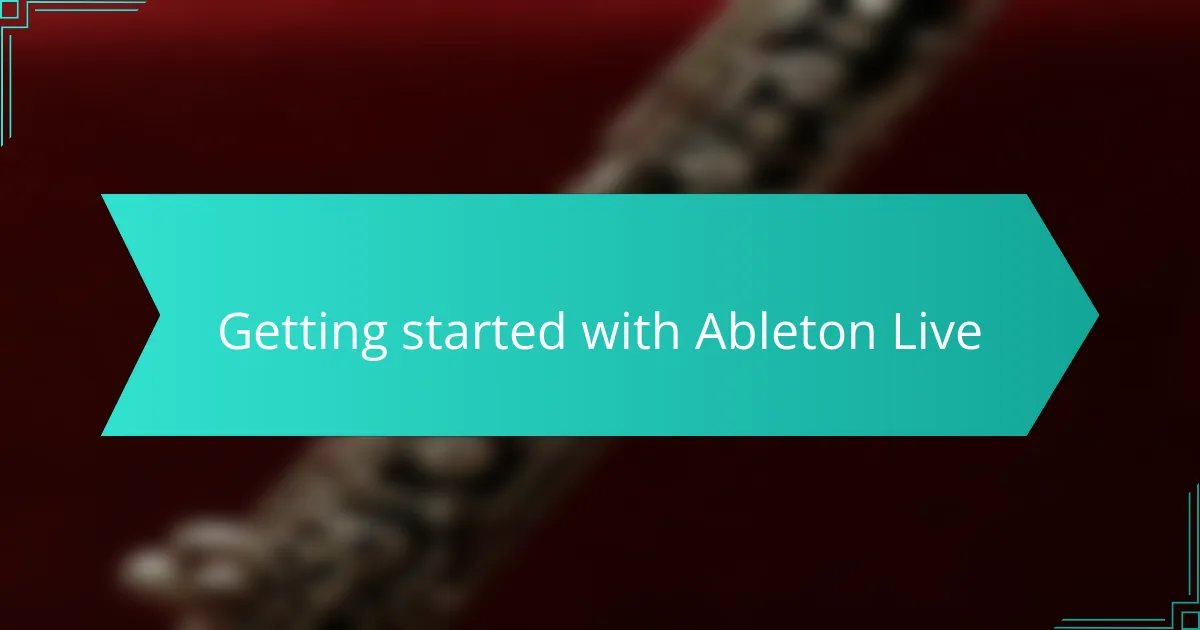
Getting started with Ableton Live
Getting started with Ableton Live can feel overwhelming at first, but that initial learning curve is worth it. I remember sitting in front of the software, feeling a mix of excitement and confusion as I navigated through the interface. Once I took the time to explore the layout and familiarize myself with its features, it all started to click. Have you ever had that moment where everything suddenly makes sense? It’s incredibly rewarding.
I recommend diving into some online tutorials, as they can significantly speed up your learning process. When I decided to follow a few beginner-friendly videos, I discovered so many shortcuts and tips that transformed how I approached music production. It made me realize that the more engaged I was with the tools at my disposal, the more I could enhance my creativity. Have you found any resources that helped you in your journey?
Another important step is to experiment with different projects and templates. When I first started, I explored different genres and styles, which broadened my understanding of what Ableton Live could do. I recall creating a simple track that taught me about layering sounds, which not only improved my skills but also inspired me to push my creative boundaries. What have you experimented with in your music production, and how did it shape your sound?
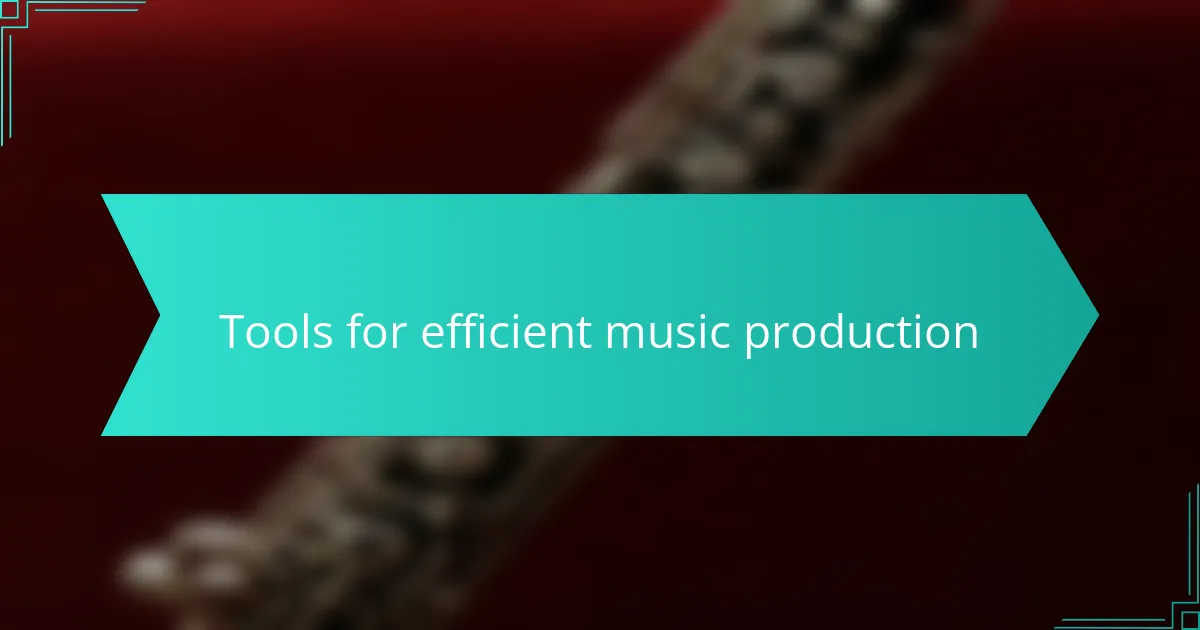
Tools for efficient music production
When I first started using Ableton Live, I quickly realized that having the right tools was essential for efficient music production. My go-to features include Session View for improvisation and Arrangement View for structured composition. It’s fascinating how combining these views allows me to experiment while keeping my ideas organized, ultimately preserving my creative flow.
To maximize productivity, I also rely on a few indispensable tools:
- Templates: Setting up project templates saves me time and helps me stay focused on the creative aspects instead of getting bogged down in setup.
- Macro Controls: I use macros to streamline complex effects, enabling me to manipulate multiple parameters with a single control.
- Track Freezing: This feature is a lifesaver for managing CPU usage, especially when I’m working with resource-intensive plugins.
- Third-Party Plugins: I love exploring new plugins that complement Ableton’s native offerings, which expand my sound palette and inspire my creative process.
- Practice and Routine: Establishing a regular practice schedule has significantly improved my efficiency and confidence, creating a more enjoyable workflow.
These tools have not only enhanced my productivity but also deepened my emotional connection to the music I’m creating. Each time I sit down to produce, I’m reminded of the countless hours spent refining my approach, which now feels like second nature.
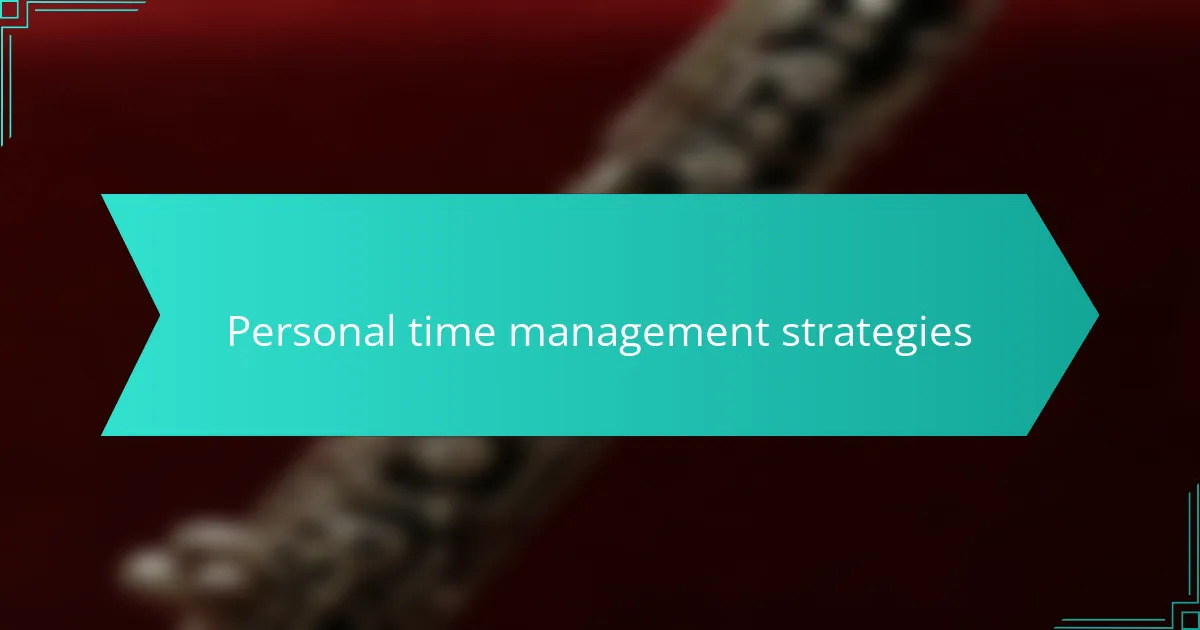
Personal time management strategies
When it comes to managing my time in Ableton Live, I’ve found a few strategies that work wonders. One of my biggest hurdles used to be staying focused amidst the endless possibilities of music creation. By setting clear, achievable goals for each session, I’ve learned to harness my creativity without feeling overwhelmed. I remember a particular night where I dedicated my two-hour studio time to just refining a single beat, and the sense of accomplishment I felt afterward was invigorating.
Additionally, I discovered that creating a structured routine does wonders for my productivity. I try to allocate specific days for songwriting, mixing, or learning new techniques, allowing me to dive deeper into each task without feeling rushed. This approach not only reduces stress but also keeps my enthusiasm high, knowing I have designated times to experiment and objectify my creativity.
- Set clear, achievable goals for each session.
- Create a structured weekly routine for different tasks.
- Limit session time to avoid burnout and maintain focus.
- Use tools like timers to keep track of time spent on each project.
- Designate ‘free exploration’ days to ignite creativity without restrictions.
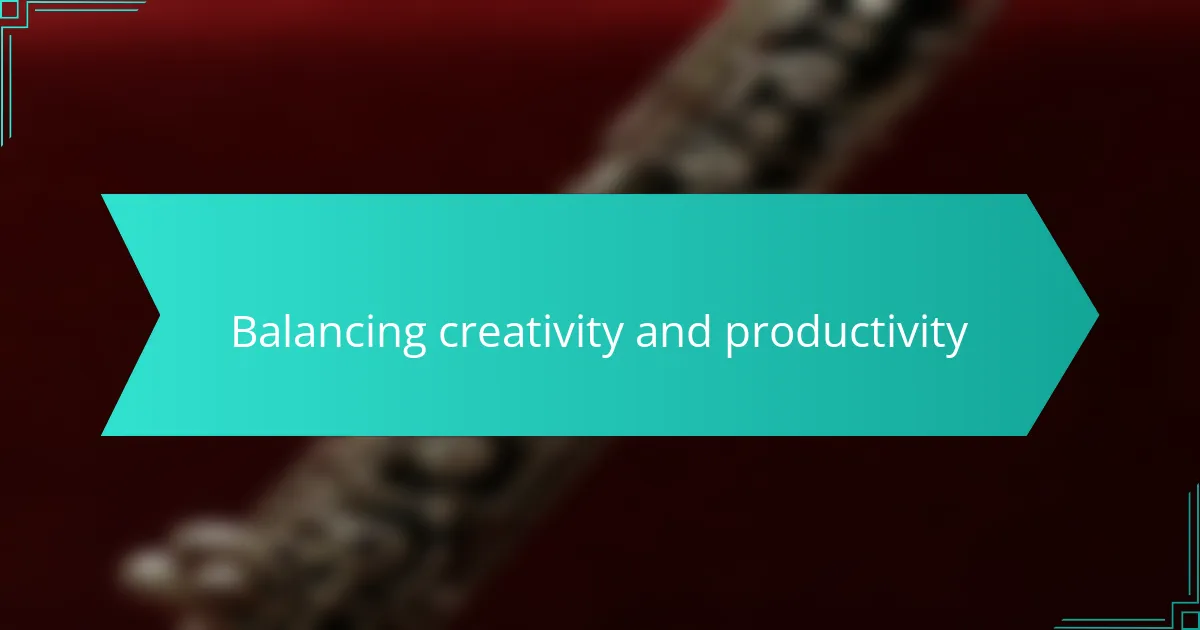
Balancing creativity and productivity
Finding the right balance between creativity and productivity in Ableton Live can feel like walking a tightrope. I remember one late night, deeply immersed in crafting a track, when I realized I had spent hours without tangible progress. That experience taught me to set clear intentions for my sessions. Now, I often define specific goals for each time I sit down, whether it’s sketching out a melody or refining a beat. This focused approach has transformed my workflow.
To maintain this balance, I’ve implemented a few strategies that keep my creative juices flowing while ensuring I don’t lose sight of my productivity goals:
- Establish specific time blocks for creativity and structure in my sessions.
- Set achievable daily or weekly targets for completing tracks or new ideas.
- Use templates in Ableton Live to streamline my workflow and encourage spontaneity.
- Allow for breaks to recharge my mind, preventing burnout and fostering new ideas.
- Experiment with different genres or techniques to keep the creative spark alive.
By consciously integrating these methods, I’ve found that I can produce high-quality music while nurturing my creativity.
